Fall 2019
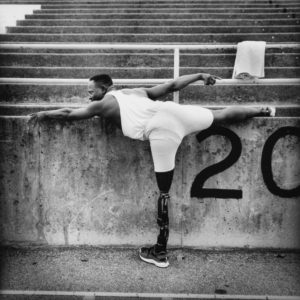
Reviving and Reflecting on “Portrait of Spirit: One Story at a Time”
Both a book and an exhibit, Portrait of Spirit: One Story at a Time by Billy Howard and Maggie Holtzberg offers new perspectives while challenging the way we view the lived disability experience. Using stunning photographs and beautifully written narratives from Portrait of Spirit, this piece serves as an ode to the groundbreaking stories that started it all while advocating for continued societal change for people living with disabilities.

Critical Disability Studies With Rehabilitation: Re-thinking the human in rehabilitation research and practice
In this Perspective, Donya Mosleh, PhD argues for a new mode of scholarly practice that recognizes and addresses tensions between two fields that seemingly occupy opposite ends of a continuum. In order to promote a more productive engagement, critical disability studies with rehabilitation sciences unsettles knowledge relations that position these two fields as oppositional and incompatible.

Finding Help: Exploring the accounts of persons with disabilities in Western Zambia regarding strategies to improve their situation
The main focus of rehabilitation is to provide help to those who need it. But does the Western definition of “help” always apply in other regions? In “Finding Help: Exploring the Accounts of Persons With Disabilities in Western Zambia…,” Shaun R. Cleaver and colleagues present the concept of help in a completely new light, and offer suggestions for a more societally-based approach to healing.
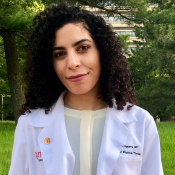
Out of Oxygen
In this sensitive reflection, DPT student Mercedes Aguirre describes an incident during her first clinical experience that taught her the importance of taking a deep breath—and speaking up on behalf of one’s patient.
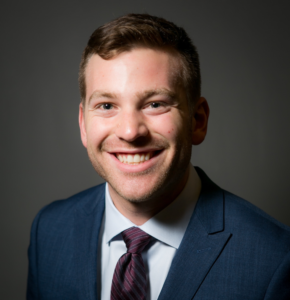
Beyond First Impressions
Jake Raecker, DPT student, recalls a patient he encountered during his first clinical rotation who gave him quite a shock—but, with care and attention, taught him a valuable lesson about looking beyond first impressions.

“The Best is the Enemy of the Good”
The healthcare professions often attract talented, committed perfectionists. But what can practitioners do when that perfectionism negatively affects rehabilitation? In “The Best is the Enemy of the Good,” David Gillette describes how his PT residency experience, and the thoughtful guidance of his mentors, helped him confront the negative aspects of his perfectionism and turn his thoughts toward the good.
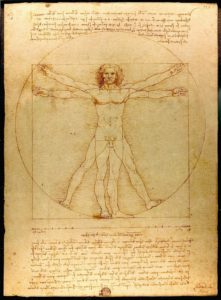
Human Anatomical Gifts and Informed Consent: Three Perspectives
The United States abides by the Revised Uniform Anatomical Gift Act to regulate bodies donated to science; prior consent must be given. When DPT students at Georgia State University had the opportunity to attend an anatomic exhibition displaying preserved human specimens from another country, many ethical questions arose. In “Human Anatomical Gifts,” three writers offer their perspectives, developed during the discussions that ensued, on the ethics of anatomic study—and exhibition.

Resources
Keenan Whitesides and Dorottya B. Kacsoh will compile the Resources section for the Fall 2019 Issue.
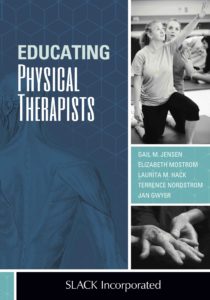
Exploring Excellence: Author Reflections on Educating Physical Therapists
In this issue’s Book Review, the authors of Educating Physical Therapists describe their “10-year journey” of discovery that produced the first definitive report on the state of American PT education in a half-century. They highlight aspects of their findings of particular interest to readers of JHR—for example, their recommendations for “integration of the humanities across the curriculum.”

Profiles in Professionalism with Nancy Kirsch
In our Fall 2019 installment of JHR’s “Profiles in Professionalism” series, we sit down with Dr. Nancy R. Kirsch—a thinker whose compassionate, prolific scholarship is recognized throughout the field of rehabilitation. In this interview, Dr. Kirsch explores how physical therapy has evolved, and the critical role the humanities play in developing caring and compassionate professionals.

Editorial: The Healing Power of Seeing—and Being Seen
Part of our job as clinicians is to recognize that while our knowledge and skills are the tools to facilitate the body’s recovery from illness, it is our shared humanness, our presence, that supports the healing power of the soul. How we dance along those lines—recognizing where our role is to fix or simply be present—is the beautiful, sometimes haunting part of the rehabilitation landscape that the humanities can help us navigate.

Reading Eucalyptus: Reflections on Narrative Education in Medicine and Health Sciences
Healthcare educators may find inspiration from a seemingly infinite number of resources. In “Reading Eucalyptus,” Christy D. DiFrances describes how an encounter with a work of magical fiction years ago still provides her with “keen observations that are surprisingly relevant to education in academic medicine and health sciences.”
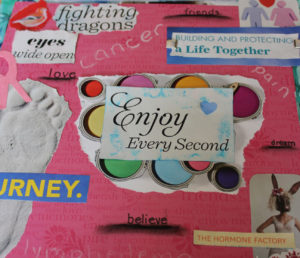
Fostering Hope and Coping While Living With Lymphedema: A Visual Narrative for Engaging Cancer Survivors and Caregivers
With compelling quotes from participants, and links to their groundbreaking video, these authors relate the fundamental impact of a series of workshops they developed to help cancer survivors live with lymphedema. The lymphedema video is “an accessible tool for patients, caregivers, students, and healthcare professionals,” they note. “We echo the participants’ hope that it will encourage dialogue between health professionals and patients.”
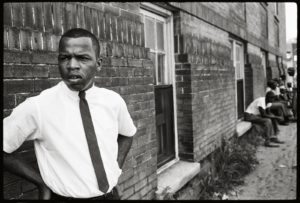
The Persisting Values of Humanism, Integrity, and Truth-Seeking
Presenting the Fall 2020 issue of JHR to readers, Editor-in-Chief Sarah Blanton looks deeply into the role of humanities in healing and inspiring a nation facing challenges both physical and societal. Remembering the last words of Representative John Lewis urging Americans to “stand up, speak up and speak out,” Blanton pledges the commitment of JHR to presenting narratives, both personal and collective, that encourage fundamental healing. She introduces with this issue a themed series dedicated to topics of social justice as well as the experiences of people caught in the COVID-19 pandemic. “We believe, in moments like these, that the next right step begins with seeing each other more clearly and using the humanities as a conduit for exploring the lived experience of others.”

